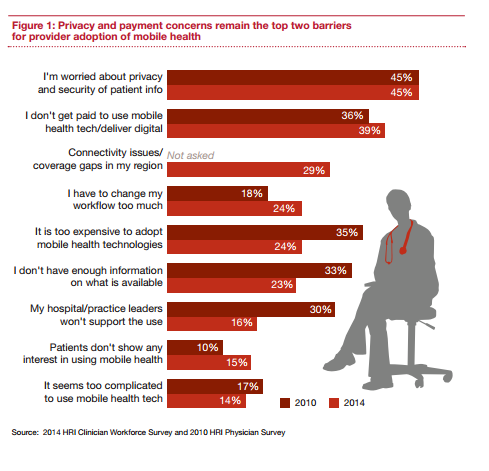A new report from PriceWaterhouseCoopers (PwC) shows the digital technology that transformed industries such as banking are now poised to become standard fare among healthcare providers. However, as the industry targets improvements in analytics and workflow moving forward, concerns about consumer consent and privacy linger among many.
“Digitally-enabled care is no longer nice-to-have, it’s fundamental for delivering high quality care,” said Daniel Garrett, health information technology practice leader for PwC US, in announcing the report. “Just as the banking and retail sectors today use data and technology to improve efficiency, raise quality, and expand services, healthcare must either do the same or lose patients to their competitors who do so.”
According to PriceWaterhouseCoopers, the report surveyed more than 1,000 industry execs, physicians and other providers, and found the following:
– About 42% of physicians are comfortable relying on at-home test results to prescribe medication.
– Half of physicians said e-visits, or telemedicine, could replace more than 10% of in-office patient visits, and nearly as many consumers indicated they would communicate with caregivers online.
– Twenty-eight percent of consumers said they have a healthcare, wellness, or medical app on their mobile device, up from 16 percent last year.
– Nearly half of consumers and 79% of physicians believe using mobile devices can help clinicians better coordinate care.
The report included input from 25 executives in the healthcare industry. Responses from those leaders determined that big changes are in store for healthcare entities such as health plans, hospitals, and the pharmaceutical industry. It noted, however, that data-sharing, consumer consent, privacy and security, fragmented workflows and digital investment constitute barriers. Analytics, improving work-flow and targeting digital interventions will be key for providers going forward.
[Source: PriceWaterhouseCoopers]





